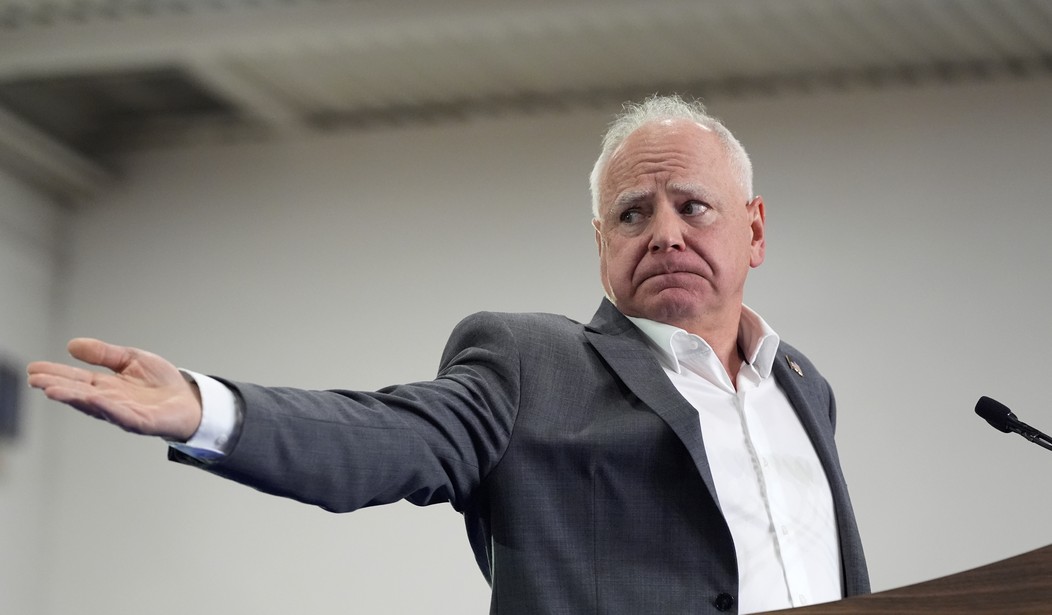In a shocking development, Minnesota is set to release a convicted axe murderer from prison due to a new law passed by Democrats. This isn’t hyperbole—this is a real case involving David Brom, who, at the age of 16, brutally killed his parents and two younger siblings. The decision stems from a controversial law that allows even the most violent offenders to qualify for early release, and the details surrounding it are as alarming as they sound.
The Law That Set a Murderer Free
Minnesota’s new law, passed during a Democratic trifecta, established the Earned Incentive Release Credit Program. This program allows inmates to reduce their sentences by participating in rehabilitation programs. As my Minnesota House colleague, Representative Matt Bliss, explained:
“That law created the earned incentive release credit program, allowing inmates to reduce their time served through participation in rehabilitation programs. Critically, it was applied retroactively, meaning violent offenders who accepted plea deals under the expectation of serving life sentences can now be released early. Many of those deals likely would not have been offered, or accepted, had early release been a possibility at the time.”
This policy has led to the impending release of David Brom, a man who committed an unthinkable crime. The comparison to releasing a horror movie villain like Jason Voorhees isn’t far off—this is a literal axe murderer who will soon walk Minnesota’s streets.
A Felon’s Deciding Vote
The law’s passage is made even more astonishing by the circumstances surrounding it. It was approved by a one-member majority in the Minnesota State Senate, with the deciding vote cast by Democratic Senator Nicole Mitchell—who has since been convicted of felony burglary. That’s right: a convicted felon cast the pivotal vote to enable the release of a convicted axe murderer. Truth, as they say, is stranger than fiction.
Pushback and the Left’s Rhetorical Tactics
When I highlighted this issue on social media, I faced pushback from Minneapolis Democrat Julius Hernandez, who called my characterization of Democrats enabling an axe murderer’s release “dishonest” and “inflammatory.” Hernandez argued:
This is exactly the kind of bad faith rhetoric that poisons any real conversation about justice. No one “values” a murderer over their victims.
— Julius Hernandez (@juliush34) July 19, 2025
Claiming Democrats support axe murderers is dishonest, inflammatory, and meant to divide. You know it isn’t true. Blanket statements… https://t.co/dMbgdTn7AS
Hernandez’s follow-up doubled down, claiming the law only applies to those convicted as juveniles and that it doesn’t “free” anyone but offers a chance at parole after decades in prison. He called this “justice.” But this framing sidesteps the reality: the law does free violent offenders, including Brom, who was sentenced to life for killing his entire family. Dismissing this as a minor detail or accusing critics of “bad faith” is a classic tactic of the Left—shifting blame to those who point out the consequences of their policies rather than owning the outcomes.
What Does “Justice” Really Mean?
This case exposes a deeper issue: the Left’s redefinition of “justice.” For most, justice means balancing the scales—holding perpetrators accountable in proportion to their crimes. In Brom’s case, taking the lives of his parents and siblings warrants the harshest punishment. While I believe execution would be just, Minnesota’s rejection of the death penalty led to a life sentence, which at least ensured Brom could never harm again. Yet, for some on the Left, even a life sentence is too severe. They view justice not as accountability but as rehabilitation, no matter how heinous the crime.
You keep pretending this bill just lets murderers loose, when the truth is it only applies to people convicted as kids. And even then, they don’t walk free, they get a shot at parole after decades behind bars. That’s not “freeing” anyone. It’s called justice.
— Julius Hernandez (@juliush34) July 19, 2025
Hernandez’s claim that releasing Brom is “justice” reflects this mindset. He argues the law only applies to juvenile offenders who’ve served decades, as if that negates the severity of the crime. To them, “justice” prioritizes giving murderers a second chance over protecting society or honoring victims.
Accountability vs. Grace
This redefinition extends to the concept of “accountability.” To most, it means facing consequences for one’s actions—serving the full sentence for a crime. To the Left, it often means merely acknowledging wrongdoing and promising reform. This conflates grace with justice.
As a Christian, I value grace—it’s central to my faith. But grace isn’t a free pass from consequences. Even God, who offers grace freely, doesn’t shield us from earthly accountability. Releasing a murderer because they’ve “reformed” ignores the gravity of their actions and the need to protect society.
The Bigger Picture
This issue isn’t isolated. During a Minnesota House debate on my bill to impose harsher sentences on three-time violent felons, I encountered similar arguments prioritizing rehabilitation over public safety. The idea that someone with multiple violent convictions should be given yet another chance defies reason. While rehabilitation is a worthy goal for some offenders, it shouldn’t supersede protecting the public or ensuring accountability.
Three. Violent. Felony. Convictions.
— Walter Hudson (@WalterHudson) March 6, 2025
Past that point, you've opted out of society.
I don't understand why we should care whether you ever reform, certainly not more than we care about whether you ever harm an innocent again. pic.twitter.com/mvmhAKwEmk
For crimes as egregious as Brom’s, there should be a line. Murdering your entire family with an axe crosses it. Minnesota’s new law, enabled by a razor-thin majority and a convicted felon’s vote, undermines justice and public safety. It’s a stark reminder that words like “justice” and “accountability” mean different things depending on who’s wielding them—and that outcomes matter more than intentions.








